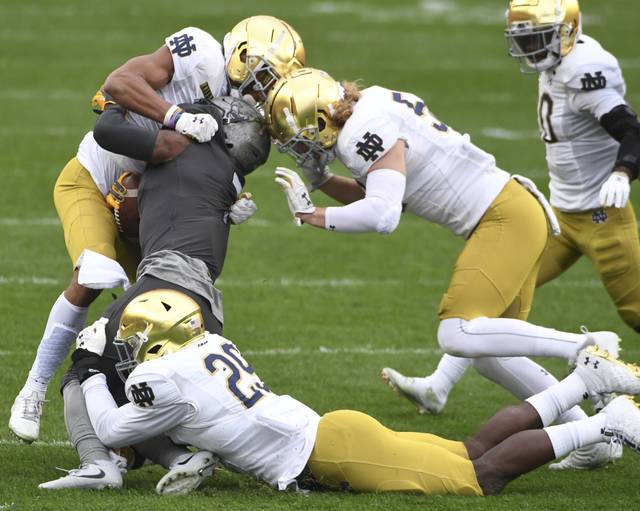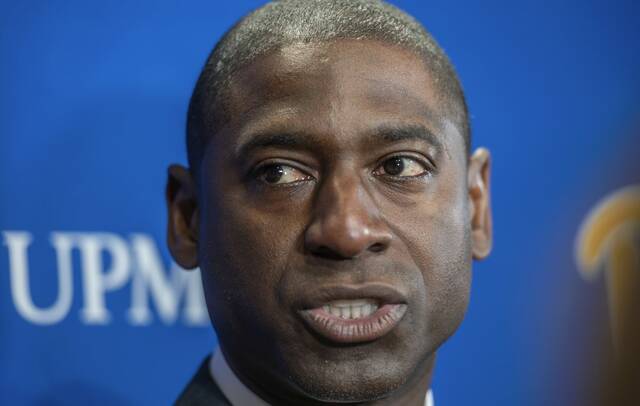The recently released plan to incorporate a 12-team College Football Playoff was largely met with applause last week. But it’s still a long way from becoming a reality.
Remember, the idea was merely crafted by a CFB playoff subcommittee comprised of Big 12 commissioner Bob Bowlsby, SEC commissioner Greg Sankey, Notre Dame athletic director Jack Swarbrick and Mountain West commissioner Craig Thompson.
The next step toward approval comes Thursday and Friday in Chicago when the 10 FBS commissioners and Swarbrick must agree on a format at a meeting.
Via ESPN.com, if the group agrees on a model, “it will present the plan to the 11 presidents and chancellors who comprise the CFP’s board of managers at a meeting in Dallas on June 22.”
According to Sports Illustrated writer and SEC Network analyst Tony Barnhart on Wednesday’s “Breakfast With Benz” podcast, final implementation may not be sealed until September of this year. And, in a best-case scenario, we are looking at sometime between 2023 and 2025 before a new format would be implemented.
One hitch — and it could be a big one — is the distribution of the money. Isn’t it always?
An example of how revenue allocation could fall into question may be for the top four teams who get byes.
On a yearly basis, it’s going to be great for the top four because they won’t have to risk losing in the first round. However, they also don’t get the economic benefit of an on-campus, first-round home game that seeds No. 5 through No. 8 would enjoy.
So far, there have been no public rumblings regarding any interested parties being blatantly upset about how profits will be allocated. Yet disclosure of how the pie is divided remains unclear. That’s from network television dollars on down.
As Barnhart tells us, that pie is going to be awfully big.
“Right now, the CFP is making about $470 million a year. That could get well, well, well, over a billion — with a ‘B’ — dollars in this new deal,” Barnhart said.
In an ironic twist, Barnhart says the coronavirus pandemic — which was a scourge to revenue for all sports, especially on the college level — may have been the catalyst to finally push long-held conversations about playoff expansion across the finish line.
And why the notion of initially expanding to just eight teams was skipped.
“With the pandemic and everything that happened, I think college athletics said, ‘We have to go big, guys. We can’t do this incremental stuff.’ And that’s what they ended up doing,” Barnhart continued. “It’ll be between one and two billion dollars. And that will be a lot of money for athletic departments who lost a ton during the covid football system.”
That said, other potential hurdles to a 12-team final plan may include concerns about player safety and participation. Some teams may play as many as 17 games en route to a national championship game. Players planning to enter the NFL Draft may not want to risk injury to play that long of a season for free.
The Rose Bowl might be a pothole, too. If it balks at playing any time besides 5 p.m. on New Year’s Day, that may throw a wrench into the plans of having the “New Year’s Six” major bowl games rotate through the quarterfinal and semifinal rounds on a clean, yearly basis.
“The semifinal games are going to be the second week in January,” Barnhart explained. “And (the Rose Bowl Committee) isn’t moving their game to Jan. 10. The Rose Bowl could change their mind. But if they are going to be a full-fledged member of this when they host a semifinal, the semifinal will be the second week of January, not the first.”
Also in our podcast, Barnhart talks about how Pitt, Penn State and West Virginia are going to benefit from a new 12-team alignment. He details how Notre Dame is going to make out nicely even without having to join a conference to compete for one of the top four seeds. Plus, we get into how ESPN will influence conversations as well.








